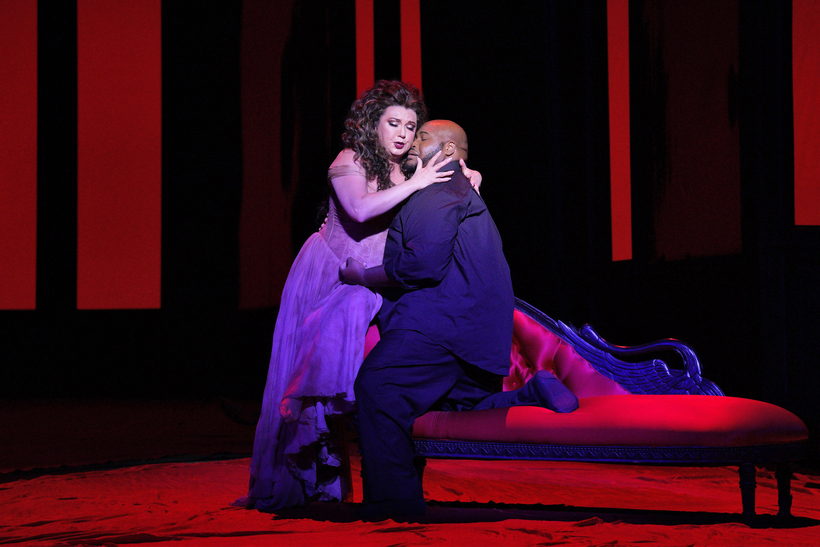From Der Fliegende Holländer to Parsifal, the 10 canonical operas of Richard Wagner’s maturity are perennially in fashion, though not always to the same degree. Tannhäuser—the allegory of a singer of songs torn between the pagan love goddess Venus in her underground grotto and the virginal Elisabeth, niece of the ruler of Thuringia—seems to have been languishing in comparative eclipse of late.
But consider the score’s pileup of greatest hits. The overture, an orchestral showpiece of the highest order. The bacchanale chez Venus. Elisabeth’s jubilant “Dich, teure Halle” and her soulful prayer “Allmächt’ge Jungfrau.” The exhilarating entrance of the guests at the climactic Song Contest. The baritone’s Song to the Evening Star, steeped in Weltschmerz. The heldentenor hero’s shattering account of his drubbing by the pope. I’m in. Aren’t you?

Hard on the heels of live streams of Il Trovatore, the Los Angeles Opera returns to the stage and the Internet with a revival that could bring Tannhäuser back out of the penumbra. The formidable Issachah Savage stars as the bipolar hero, a killer role long in search of an authoritative present-day avatar. His attention and ours is divided between the Russian Yulia Motochkina as the volatile, imperious Venus and the American Sara Jakubiak as Elisabeth, who is not exactly the plaster saint the synopsis may suggest. James Conlon conducts.
A note on the female principals. As many have observed, the sex-driven temptress and the self-sacrificing ingenue, who never appear at the same time, are flip sides of the Eternal Feminine. As such, they are one life force in two bodies. The contrasts between their musical styles—Venus slashing, Elisabeth refulgent—are extreme.

Yet once in an age, a diva comes along who can encompass them both, even in a single evening. The incomparable Birgit Nilsson, originally a Venus, later (less plausibly) an Elisabeth, was said never to have cared much for Tannhäuser until she put the pieces together, as she did at the Metropolitan Opera in 1966. According to Harold C. Schonberg of The New York Times, the Swedish phenomenon took a “most curious” approach.
“Her Venus,” Schonberg wrote, “sounded passionless, sexless, pure; while it was her Elisabeth who has the subtle, sinuous, ultra-feminine quality. Strange. It was almost as if Miss Nilsson got her roles twisted.” More likely, Miss Nilsson was on to a paradox singers of either role would do well to internalize.
Historically minded listeners will want to know that in 1969, Nilsson committed her doubleheader to vinyl with the Deutsche Oper, Berlin, led by Otto Gerdes. In 1978, Gwyneth Jones, a Welsh powerhouse of the coming generation, followed in Nilsson’s footsteps under the baton of Colin Davis at the Bayreuth Festival, a performance preserved on video. Both documents remain available on the Deutsche Grammophon label. Time to dust them off.
Tannhäuser is on stage at the LA Opera from October 24 through November 16. The opera streams live on the LA Opera Web site on October 24 and October 27
Matthew Gurewitsch writes about opera and classical music for AIR MAIL. He lives in Hawaii

